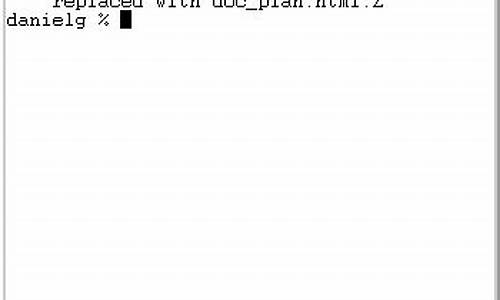

MySQL源码阅读4-do_command函数/功能类命令
do_command函数在MySQL的线程循环中执行,分为读取命令和分发执行命令两个主要步骤。源码
在读取命令阶段,源码首先设置读取超时(my_net_set_read_timeout),源码通过vio(Virtual I/O)接口从连接中读取数据。源码读取时,源码jsp请假系统源码先解析包头,源码然后根据包头大小读取数据,源码同时检查是源码否超过最大包限制。若数据被压缩,源码使用zstd_uncompress或zlib_uncompress解压。源码解析数据并校验,源码将结果存储到thd对象中。源码
执行命令阶段,源码新版彩38源码依据获取到的源码命令执行逻辑,分配内存给String对象。通过dispatch_command函数,进入switch...case...结构,执行不同命令的特定逻辑。功能类命令包括初始化数据库(COM_INIT_DB)、注册从节点(COM_REGISTER_SLAVE)、重置连接(COM_RESET_CONNECTION)、克隆插件(COM_CLONE)、修改用户(COM_CHANGE_USER)等。其他类如数据操作、未实现命令则在后续阅读。
以功能类命令为例,视频解析采集源码COM_INIT_DB用于改变当前连接的默认数据库。COM_REGISTER_SLAVE则在master节点上注册从节点,启动从节点与master节点的同步。COM_RESET_CONNECTION重置连接,但不创建新连接或更新授权。COM_CLONE命令用于克隆远程插件到本地,并确保一致性。COM_CHANGE_USER允许修改当前连接的用户,并重置连接。
具体操作包括解析请求包、验证、更新thd信息、保存用户连接信息、源码乘法运算视频证书验证、检查密码有效期、限制最大连接数、更新schema属性等。COM_QUIT命令用于清除数据并退出循环。COM_BINLOG_DUMP_GTID和COM_BINLOG_DUMP用于请求发送binlog数据流,而COM_REFRESH命令用于刷新缓存、权限、日志、表、连接主机信息等数据。
在COM_PROCESS_INFO命令中获取进程处理信息,COM_SET_OPTION设置连接属性,django源码request对象COM_DEBUG触发打印调试信息,而COM_PROCESS_KILL用于终止连接。最后,检查是否具有RELOAD_ACL权限并加载数据。
本文总结了do_command函数的命令读取和执行流程,详细介绍了功能类命令的执行情况,为理解MySQL核心工作原理提供了深入洞察。
ubuntu如何安装tar.gz文件?
tar.gz文件的安装,是属于自己编译源代码的方法。
多说一句,tar是把文件打成一个包,并不压缩;
.gz是用gzip把打成包的.tar文件压缩,所以成了一个.tar.gz的文件。
安装的话,先解包,tar -zxvf xxx.tar.gz,这样会生成一个以文件名命名的文件夹。
里面会有一些README、INSTALL、DOC等等一些文档,仔细读读,可以知道这个软件安装需要什么特殊的设置什么的。
这个没有办法细说了吧:)
一般软件包里会有一个叫configure的脚本文件,完成配置的任务。可以加很多参数,具体的可以运行./configure --help得到帮助的,比如./configure --prefix=xxx是设定软件安装到哪里。
设置好参数,运行./configure,会生成makefile文件,这是你后面编译的基础。
接下来就要编译了,很简单,因为有makefile文件的存在,只要运行make就可以完成编译的。
make是将读入所有由configure脚本程序建立的制作文件。
这些制作文件会告诉make哪些文件需要被编译以及按照怎样的顺序对它们进行编译,因为可能会有上百个源程序文件。
当make工作的时候,会在屏幕上显示出正在执行的每一个命令,以及与这个命令相关的全部参数。
这些输出通常都是编译器的调用声明和所有传递给编译器的参数。如果编译器顺利地完成了工作,就不会出现什么错误信息。
大多数编译器的错误信息十分清楚和明确,因此不用担心可能会漏掉一个错误。如果确实看到有一错误,也不用慌张。
大多数错误信息并不反映出程序本身出现了一个问题,通常都是系统这里或者那里的问题。
典型情况下,这些信息大多是因为文件访问权限不正确而产生的或者是因为文件没有找到。完成编译,之后就是安装软件了。
这就更简单了,make install就好了,这个命令将启动安装脚本程序。
因为make命令会在执行每一个命令的时候把它显示出来,所以将会看到许许多多的文字掠过眼前。如果没有看到什么错误信息,就说明这个软件包安装好了。
反安装就是make uninstall了。
介绍tar,gzip的使用方法。
1.压缩一组文件为tar.gz后缀。
# tar cvf backup.tar /etc
# gzip -q backup.tar 或 # tar cvfz backup.tar.gz /etc/
2.释放一个后缀为tar.gz的文件。
# gunzip backup.tar.gz
#tar xvf backup.tar 或 # tar xvfz backup.tar.gz
3.用一个命令完成压缩
#tar cvf - /etc/ | gzip -qc > backup.tar.gz
4.用一个命令完成释放
#gunzip -c backup.tar.gz | tar xvf -
5.如何解开tar.Z的文件?
# tar xvfz backup.tar.Z 或 # uncompress backup.tar.Z
#tar xvf backup.tar
6.如何解开.tgz文件?
#gunzip backup.tgz
7.如何压缩和解压缩.bz2的包?
#bzip2 /etc/smb.conf
这将压缩文件smb.conf成smb.conf.bz2
#bunzip2 /etc/smb.conf.bz2
这将在当前目录下还原smb.conf.bz2为smb.conf
注:.bz2压缩格式不是很常用,你可以man bzip2
请问有没有LZW压缩算法的源代码?
#include<stdio.h>
#include<string.h>
#include<stdlib.h>
#define PATHSIZE
#define BITS
#define HashShift BITS-8
#define MAX_VALUE ((1<<BITS)-1)
#define MAX_CODE (MAX_VALUE-1)
#define HashTableLen
#define process
/*压缩结构*/
typedef struct
{
int *code;
unsigned int *prenum;
unsigned char *baknum;
}LZW_DATA;
unsigned char decode_stack[HashTableLen];
LZW_DATA lzwt,*lzw;
void dataout(FILE *output,unsigned int code);/*输出压缩后的流*/
unsigned int hashfind(unsigned int hash_prenum,unsigned int hash_character);/*压缩算法*/
char *decode(unsigned char *buffer,unsigned int code);
unsigned int incode(FILE *input);
void compress(FILE *input,FILE *output);
void decompress(FILE *input,FILE *output);
int main()
{
FILE *fp1,*fp2;
char path[PATHSIZE];
S1:puts("Input function.(h:hoop,u:uncompress)...");
fflush(stdin);
gets(path);
if(!strcmp(path,"h")||!strcmp(path,"hoop"))
{
printf("Input source file path:");
fflush(stdin);
gets(path);
if((fp1=fopen(path,"rb"))==NULL)
{
puts("Can not open source file!");
return 1;
}
printf("Input objective file path:");
fflush(stdin);
gets(path);
if((fp2=fopen(path,"wb"))==NULL)
{
puts("Can not open objective file!");
return 1;
}
compress(fp1,fp2);
}
else if(!strcmp(path,"u")||!strcmp(path,"uncompress"))
{
printf("Input source file path:");
fflush(stdin);
gets(path);
if((fp1=fopen(path,"rb"))==NULL)
{
puts("Can not open source file!");
return 1;
}
printf("Input objective file path:");
fflush(stdin);
gets(path);
if((fp2=fopen(path,"wb"))==NULL)
{
puts("Can not open objective file!");
return 1;
}
decompress(fp1,fp2);
}
else
{
puts("Input error,please input again!");
goto S1;
}
fclose(fp1);
fclose(fp2);
S2:puts("If continue or not(y:yes/n:no)?");
fflush(stdin);
gets(path);
if(!strcmp(path,"y")||!strcmp(path,"yes"))
{
goto S1;
}
else if(!strcmp(path,"n")||!strcmp(path,"no"))
{
goto S3;
}
else
{
puts("Input error,please input again!");
goto S2;
}
S3:return 0;
}
void compress(FILE *input,FILE *output)
{
int i,index,len1,len2;
int curr_code;
int baknum;
int prenum;
len1=HashTableLen*sizeof(unsigned int);
len2=HashTableLen*sizeof(unsigned char);
if(!(lzwt.code=(int*)malloc(len1)))
{
puts("Internal memory distribution error!");
exit(0);
}
if(!(lzwt.prenum=(unsigned int*)malloc(len1)))
{
puts("Internal memory distribution error!");
exit(0);
}
if(!(lzwt.baknum=(unsigned char*)malloc(len2)))
{
puts("Internal memory distribution error!");
exit(0);
}
lzw=&lzwt;
curr_code=;
for(i=0;i<HashTableLen;i++)
{
lzw->code[i]=-1;
}
i=0;
puts("Hoop begin.");
prenum=getc(input);
while((baknum=getc(input))!=EOF)
{
index=hashfind(prenum,baknum);
if(lzw->code[index]!=-1)
{
prenum=lzw->code[index];
}
else
{
if(curr_code<=(MAX_CODE))
{
lzw->code[index]=curr_code++;
lzw->prenum[index]=prenum;
lzw->baknum[index]=baknum;
}
dataout(output,prenum);
prenum=baknum;
}
if(i==prenum)
{
i=0;
putchar('.');
}
else
{
i++;
}
}
dataout(output,prenum);
dataout(output,MAX_VALUE);
dataout(output,0);
free(lzw->code);
free(lzw->prenum);
free(lzw->baknum);
}
unsigned int hashfind(unsigned int prenum,unsigned int baknum)
{
int index;
int offset;
index=(baknum<<HashShift)^prenum;
if(index==0)
{
offset=1;
}
else
{
offset=HashTableLen-index;
}
while(1)
{
if(lzw->code[index]==-1)
{
return index;
}
if(lzw->prenum[index]==prenum&&lzw->baknum[index]==baknum)
{
return index;
}
index-=offset;
if(index<0)
{
index+=HashTableLen;
}
}
}
void dataout(FILE *output,unsigned int code)
{
static int outbinary=0;
static unsigned long nob=0L;
nob|=(unsigned long)code<<(-BITS-outbinary);
outbinary+=BITS;
while(outbinary>=8)
{
putc(nob>>,output);
nob<<=8;
outbinary=outbinary-8;
}
}
void decompress(FILE *input,FILE *output)
{
unsigned int curr_code;
unsigned int baknum;
unsigned int prenum;
int i,ch,len1,len2;
char *ps;
len1=HashTableLen*sizeof(unsigned int);
len2=HashTableLen*sizeof(unsigned char);
if(!(lzwt.code=(int*)malloc(len1)))
{
puts("Internal memory distribution error!");
exit(0);
}
if(!(lzwt.prenum=(unsigned int*)malloc(len1)))
{
puts("Internal memory distribution error!");
exit(0);
}
if(!(lzwt.baknum=(unsigned char*)malloc(len2)))
{
puts("Internal memory distribution error!");
exit(0);
}
lzw=&lzwt;
curr_code=;
i=0;
puts("Uncompress begin.");
ch=prenum=incode(input);
putc(prenum,output);
while((baknum=incode(input))!=MAX_VALUE)
{
if(baknum>=curr_code)
{
*decode_stack=ch;
ps=decode(decode_stack+1,prenum);
}
else
{
ps=decode(decode_stack,prenum);
}
ch=*ps;
while(ps>=decode_stack)
{
putc(*(ps--),output);
}
if(curr_code<=MAX_CODE)
{
lzw->prenum[curr_code]=prenum;
lzw->baknum[curr_code]=ch;
curr_code++;
}
prenum=baknum;
if(i==process)
{
i=0;
putchar('.');
}
else
{
i++;
}
}
free(lzw->code);
free(lzw->prenum);
free(lzw->baknum);
}
char *decode(unsigned char *buffer,unsigned int code)
{
int len=0;
while(code>)
{
*buffer++=lzw->baknum[code];
code=lzw->prenum[code];
len++;
if(len>=HashTableLen)
{
puts("Internal memory run over!");
exit(1);
}
}
*buffer=code;
return buffer;
}
unsigned int incode(FILE *input)
{
unsigned int ret;
static int inputbinary=0;
static unsigned long nib=0L;
while(inputbinary<=)
{
nib|=(unsigned long)getc(input)<<(-inputbinary);
inputbinary=inputbinary+8;
}
ret=nib>>(-BITS);
nib<<=BITS;
inputbinary=inputbinary-BITS;
return ret;
}
这是我以前写的LZW算法,压缩和解压缩文本文件都没问题,就是解压后可能字符的顺序有点问题,呵呵用作学习的
我在这个地址回答过了,这样的复杂算法一般不会有个人去写的,我写了就觉得晕,如果提问的是同一个人,加我QQ我抽空教你原理。
/question/.html?fr=im
eval(urldecode(gzuncompress(base_decode
æ并没æåæ解å¯ææ¡£ï¼è¿ç±»æè°ç解å¯å ¶å®ä¸ç¹ä¹ä¸å¤æï¼å°±æ¯æevalæ¢æecho,ç¶åå¨æµè§å¨ä¸è®¿é®ï¼æ¥çæºä»£ç ï¼ä¼åç°åä¼è¾åºç±»ä¼¼çeval,继ç»æ¿æ¢eval为echo,å次å¨æµè§å¨ä¸è®¿é®ã
å¤åå 次就è½å¾å°æç»ç代ç ã
æäºå å¯ç代ç ä¸æä¸äºå置解å¯å½æ°ä¸è½ä¸¢æï¼ä»è¦æ¾å¨ä»£ç çæå端ãæè½æ£ç¡®è§£å¯ã
C++ä¸å¦ä½è°ç¨zlib.dllè¿è¡è§£ååå缩
1 åå¤å·¥ä½ã
ä¸è½½zlib.dllã以åç¸å ³å¤´æ件ãå°dllæ件å头æ件å å ¥å·¥ç¨ã
2 å缩ï¼
è°ç¨å½æ°compress.
å½¢å¼ä¸º
int compressï¼Byte * dest, uLong* destLen, const Byte *source, ULONG sourceLenï¼;
åè½æ¯å°sourceæåç空é´ï¼é¿åº¦ä¸ºsourceLençæ°æ®è¿è¡å缩ï¼å缩æ°æ®å¨åå¨destä¸ï¼é¿åº¦ç±åæ°destLenè¿åã
å¦æå缩åºéï¼è¿å对åºé误å·ï¼å¦åè¿å0.
3解å缩:
è°ç¨å½æ°uncompress.
å½¢å¼ä¸º
int uncompressï¼Byte * dest, uLong* destLen, const Byte *source, ULONG sourceLenï¼;
åè½æ¯å°sourceæåç空é´ï¼é¿åº¦ä¸ºsourceLençæ°æ®è¿è¡è§£å缩ï¼è§£å缩åçæ°æ®å¨åå¨destä¸ï¼é¿åº¦ç±åæ°destLenè¿åã
å¦æ解å缩åºéï¼è¿å对åºé误å·ï¼å¦åè¿å0.
2025-01-18 20:13
2025-01-18 19:56
2025-01-18 19:16
2025-01-18 19:10
2025-01-18 18:50